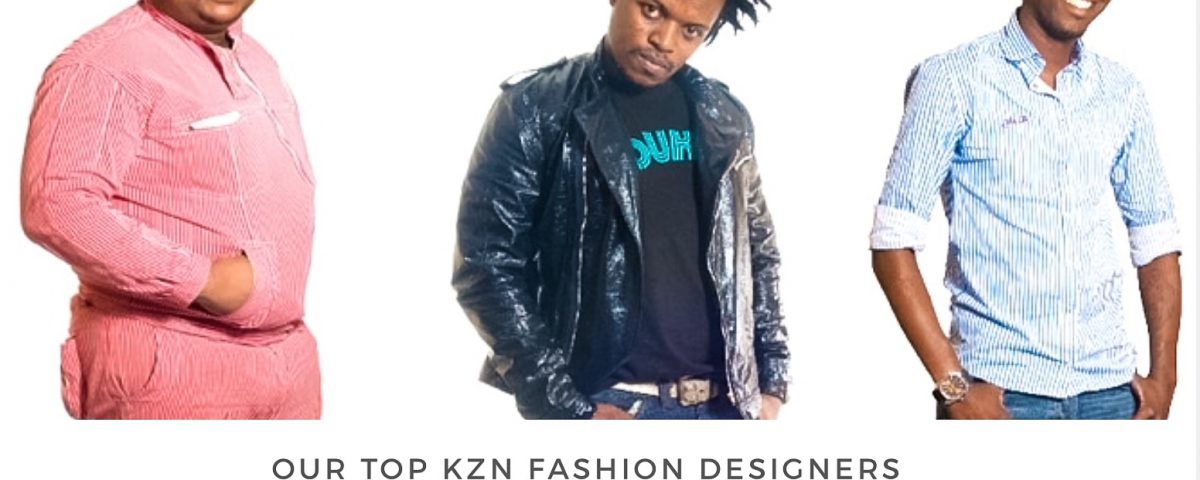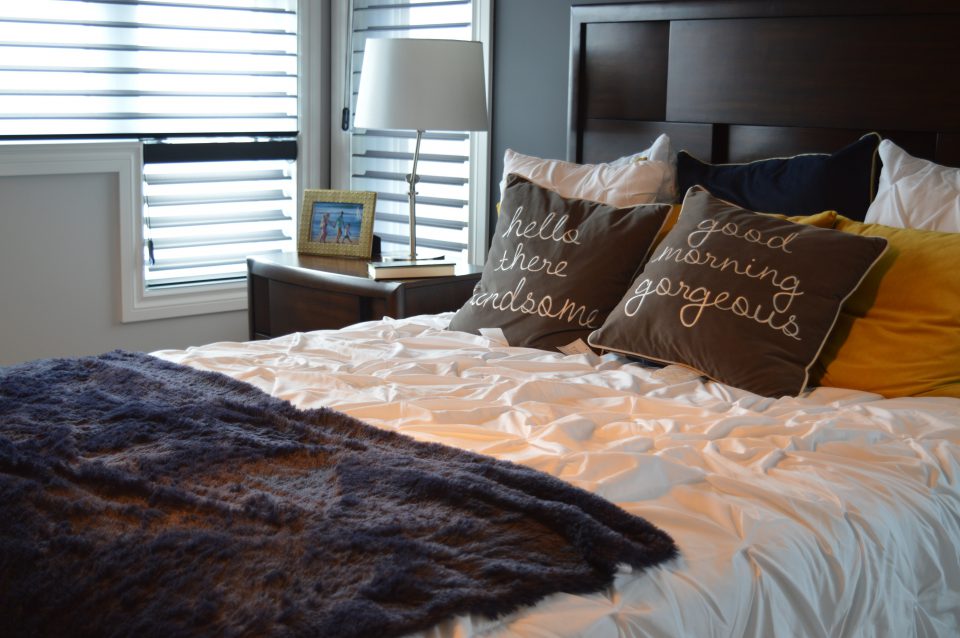
The Survival Kit for Teenage Relationships
June 10, 2016
CONNECTING AFRICA: Embrace your Arica Keeping abreats with the issues that affect the Motherland
June 16, 2016
LINDA MAZIBUKO
LABEL: FREE SLAVE
Motivated by the fact that he couldn’t find the right style of clothing in stores and fashion boutiques, Linda began making his own clothes around 2006. “I soon realized that people were interested in my style of dress and were always commenting about my stylish clothes. When quite a sizeable number kept asking me to design for them, I took that as a good sign and decided to start my business – NK Collection.”
Today, Linda is counted among Durban’s finest young entrepreneurs in charge of a growing, fresh fashion line that is doing serious rounds in KwaZulu-Natal. Designing under the most-recognizable Free Slave label, Linda’s range is best described as casual and comfortable, with a touch of fun sophistication. Making clothes for both sexes, Linda also doesn’t shy away from making plus-size clothes. “Free Slave is for everyone and caters for all tastes, styles and body sizes and shapes. Sometimes people assume that because I use thin models at fashion shows, I only make clothes for such people, but that is not so. I enjoy making everyone beautiful, whether big- or small-framed!”
For Linda, fashion is a passion, a calling. “The business of fashion is like a growing flower that you must nurture and grow till it blooms. It takes time, dedication and sacrifice to grow this business. But the reward is priceless! When I see someone I have made an outfit for, looking great, walking tall and feeling confident, I feel immensely proud of myself and the hard work I put in.” While his is a success story, Linda has some serious wise words for aspiring fashion designers. “Fashion is a very social- and network-intensive industry. You must interact with people and be aware of what is going on around you. Think service and quality first – the money comes much later!”
SANDILE MNGADI
LABEL: DUKE DOME
Those who know him and have been lucky enough to wear his clothes, call him Duke. At only 29 years of age, Sandile Duke Mngadi keeps it real by drawing inspiration from street trends and admiring the works of local and international fashion designers.
GENUINE: Tell us about your early days in the fashion industry.
DUKE: I joined FEP, a fashion design company which helps up-and-coming designers in 2000. Because of them, I was able to make garments for my customers. I worked there for a year before opening my own studio.
GENUINE: Had you always wanted to be a fashion designer?
DUKE: No. I had intended doing Video Technology but because of lack of funds at home, I ended up doing another course, which I later dropped.
GENUINE: What type of style defines your label?
DUKE: My style is fusion mixed with electric, coupled with elements of ethnic afro-chic.
GENUINE: What was the first item of clothing you made after learning to sew?
DUKE: I made a pair of pants for myself!
GENUINE: Over the years, which competitions have put you on the map?
DUKE: I won in the Design Durban competition, I participated in the MTN Durban 2008, the Radar Fashion Show and the 2009 East-Meets-West Durban designer show.
GENUINE: What inspires you?
DUKE: Two things – my love for beautiful clothes and looking good!
GENUINE: Who inspires you?
DUKE: Locally, it is Craig Native. Internationally, designer John Galliano does it for me!
GENUINE: Are we there yet, in the fashion stakes?
DUKE: Not at all! For as long as we lack financial support and business knowledge, it will take us a long time to reach international standards. While we may be very creative, we still lack serious business acumen and this is our biggest downfall.
GENUINE: Are fashion shows worth it for you?
DUKE: Yes they are because our clothes are seen by hundreds of people. My concern though is that there usually aren’t enough fashion buyers at these shows.
GENUINE: Does it pay to be a fashion designer?
DUKE: It does. Since I have a regular clientele, I am not strained financially. But I do feel the pinch when it comes to fashion shows because usually, the people who benefit more are the models and the organizers. It is sad that we sometimes put together excellent fashion shows and do not get paid a cent! I feel we are being exploited…
GENUINE: Are we slaves to fashion?
DUKE: To me, its not a question of being enslaved by fashion. It is something which happens naturally. While we need to cover our bodies, we also need to look good. So fashionable clothes make us look good and uplift us, making us feel good. Fashion also allows us to express ourselves without saying a word.
GENUINE: Five years from now?
DUKE: I would like to open an institution for emerging fashion designers, where I will be able to give them the tricks of the trade and help them blend into the system. I would also like to venture into the international market because I know that my label will fit perfectly there.
GENUINE: What does it take to be successful?
DUKE: It takes dedication, absolute commitment and a whole-hearted, undying love for fashion.
GENUINE: What brand legacy have you established for your label?
DUKE: Over the years, people have associated my label with quality workman-ship and absolute exclusivity. That is how I want Duke to be known – as a label that is all about quality and class.
MXOLISI MAGWAZA
LABEL: FATBOY CLOTHING
It is true that the apple doesn’t fall too far from the tree… Mxolisi Magwaza, who inherited his remarkable fashion design skills from his mother, is far from being a mama’s boy, as he proves with his designs.
Instead of following exactly in his mother’s footsteps, Mxolisi opted to design clothes that best described him and his youthful personality. Mxolisi sought the help of his friend and mentor Ayanda Maphumulo when he started. “I liked his designs so much that I asked him to teach me how to design garments, and he agreed. That is how I was able to start pursuing my dream career in fashion.”
Getting started wasn’t easy though, but with the encouragement and support from his family and friends, he was able to launch his own clothing label. “Initially, I did not know what to call my label. Then I thought back to my school days and remembered a name we had given to one of my school mates – Fatboy.”
When one hears the name of the label, one cannot help but think it has something to do with the designer’s weight or the kind of people he designs for! But that is no so. Fatboy Clothing was launched in 2000 and by that time, Mxolisi had a clear vision of the direction he wanted his label to take. “I wanted to design streetwise clothes – not over-sophisticated clothes that one only ever wears to some fancy function.” To get Fatboy Clothing off the ground, Mxolisi first designed basic t-shirts with the Fatboy logo so people could recognize it. When word spread about his new label, he decided to design shirts and pants as well. “Today I design all types of clothes, and I have even addes a ladies range to my label as well.”
While Mxolisi hasn’t been given the opportunity to participate in big fashion shows, he explains that he understands that everything happens in its own time. “Fatboy has been worn by some of Durban’s hottest DJs such as DJ Bongs and others. This shows that this label is going far.”
Five years from now Mxolisi would like to have opened at least two shops in the Province of KwaZulu-Natal. “I want my clothing range to be accessible to everyone in this Province.” A new, exciting demand that is steadily growing year on year is for matric dance garments. “I get a lot of young ladies wanting me to design their matric dance dresses which range in price from R500 upwards, with five-piece suits for guys ranging from R500 to R1500.”
Fortunately Mxolisi has two pairs of extra hands that assist him, making sure that Fatboy Clothing remains on top of its game. “There is no way I could finish all the orders I get without the assistance of Lethu Magwaza and Innocent Mementro.” Coming up with good, exclusive designs that people will like is not easy, which is why Mxolisi salutes South African fashion designers. “I have a lot of respect for fashion designers because they create something out of nothing.
“I also have a certain level that I want to reach in my business. Once I am there, I will know I have made it…”




